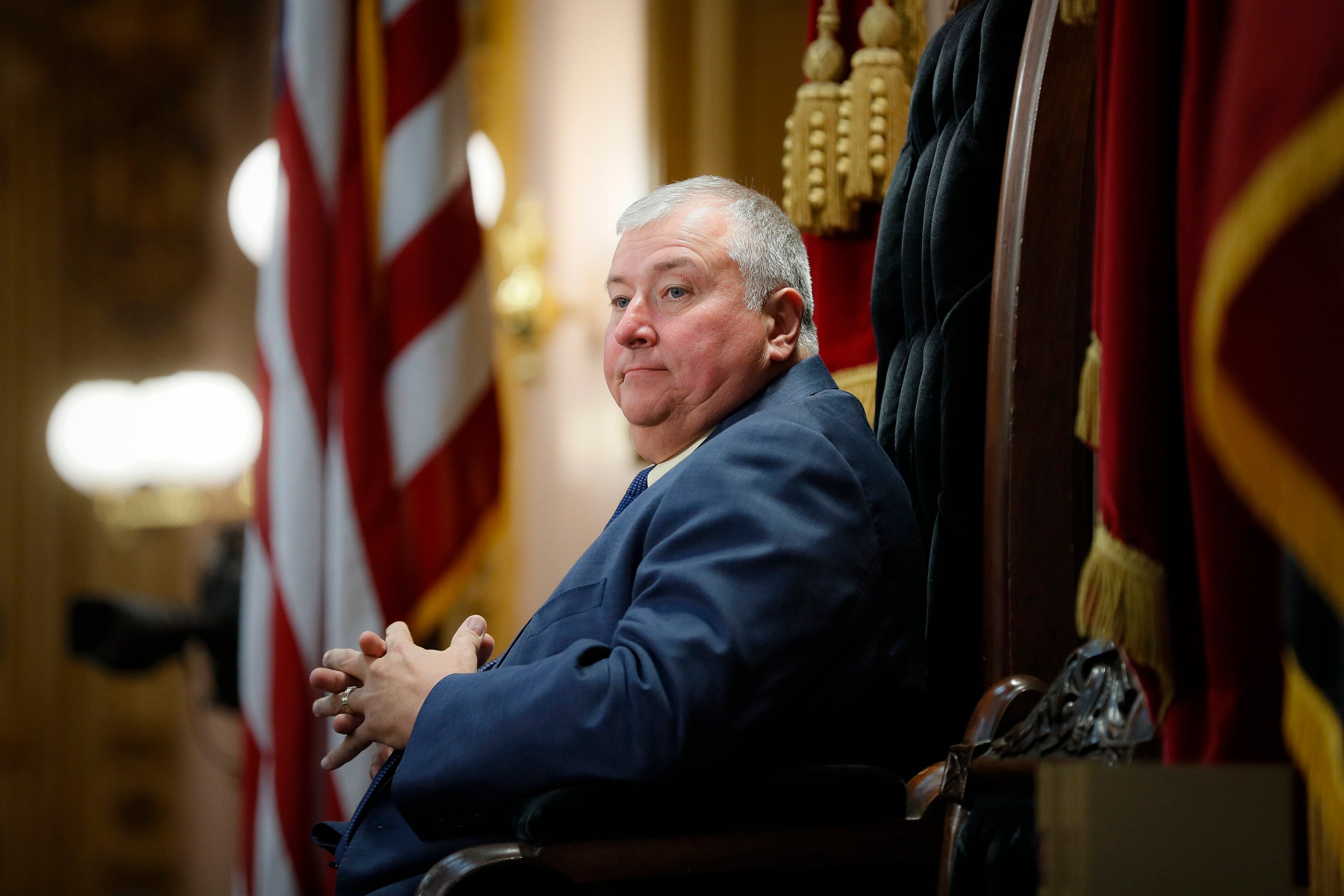Ex-GOP Ohio House speaker sentenced to 20 years for role in $60M bribery scheme; appeal expected
Former Ohio House Speaker Larry Householder has been sentenced to 20 years in prison for his role in the largest corruption scandal in state history

Your support helps us to tell the story
From reproductive rights to climate change to Big Tech, The Independent is on the ground when the story is developing. Whether it's investigating the financials of Elon Musk's pro-Trump PAC or producing our latest documentary, 'The A Word', which shines a light on the American women fighting for reproductive rights, we know how important it is to parse out the facts from the messaging.
At such a critical moment in US history, we need reporters on the ground. Your donation allows us to keep sending journalists to speak to both sides of the story.
The Independent is trusted by Americans across the entire political spectrum. And unlike many other quality news outlets, we choose not to lock Americans out of our reporting and analysis with paywalls. We believe quality journalism should be available to everyone, paid for by those who can afford it.
Your support makes all the difference.Former Ohio House Speaker Larry Householder was sentenced to 20 years in prison on Thursday for his role in the largest corruption scandal in state history.
The 64-year-old Republican appeared before U.S. District Judge Timothy Black, who meted out the punishment, about an hour after he and his wife arrived at the federal courthouse.
Householder and lobbyist Matt Borges, a former chair of the Ohio Republican Party, were both convicted in April of a single racketeering charge each, after a six-week trial. Borges is set to be sentenced Friday.
Jurors found that Householder orchestrated and Borges participated in a $60 million bribery scheme secretly funded by Akron-based FirstEnergy Corp. to secure Householder’s power, elect his allies, pass legislation containing a $1 billion bailout for two aging nuclear power plants owned by a FirstEnergy affiliate and then to use a dirty tricks campaign to stifle a ballot effort to overturn the bill.
Federal prosecutors had recommended Householder receive 16 to 20 years, holding in a sentencing memo that he “acted as the quintessential mob boss, directing the criminal enterprise from the shadows and using his casket carriers to execute the scheme.” That strategy, they said, gave Householder ”plausible deniability.”
His own attorneys had recommended just 12 to 18 months, reporting to the judge that he is “a broken man” who has been “humiliated and disgraced” by the ordeal of his widely reported arrest, high-profile prosecution and seven-week trial by jury.
Householder was one of Ohio’s most powerful politicians, a historically twice-elected speaker, before his indictment. After Householder’s arrest in July 2020, the Republican-controlled House ousted him from his leadership post, but he refused to resign for nearly a year on grounds he was innocent until proven guilty. In a bipartisan vote, representatives ultimately ousted him from the chamber in 2021 — the first such expulsion in Ohio in 150 years.
All told, five people and a dark money group have been charged so far for their roles in the scheme. A federal investigation remains ongoing.
During the trial, the prosecution called two of the people arrested — Juan Cespedes and Jeff Longstreth, who both pleaded guilty and are cooperating — to testify about political contributions they said were not ordinary, but rather bribes intended to secure passage of the bailout legislation. Generation Now, the 501(c) nonprofit through which much of the money flowed, also has pleaded guilty to racketeering.
Cespedes and Longstreth face up to six months in prison each under their plea deals. Neither has been sentenced.
The last person arrested, the late Statehouse superlobbyist Neil Clark, was heard on tape in the courtroom. Clark had pleaded not guilty before dying by suicide in March 2021.
All the alleged members of the conspiracy benefited personally from the scheme, using sums that an FBI agent described colloquially as “bags of cash” from FirstEnergy. Householder spent around $500,000 of FirstEnergy money to settle a business lawsuit, pay attorneys, deal with expenses at his Florida home and pay off credit card debt. Another $97,000 was used to pay staff and expenses for his 2018 reelection campaign.